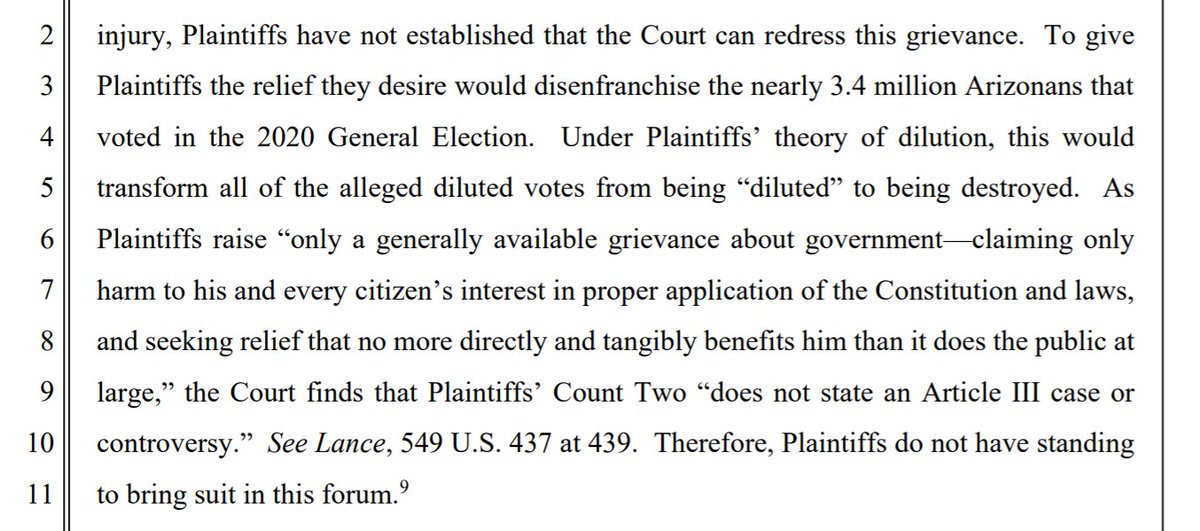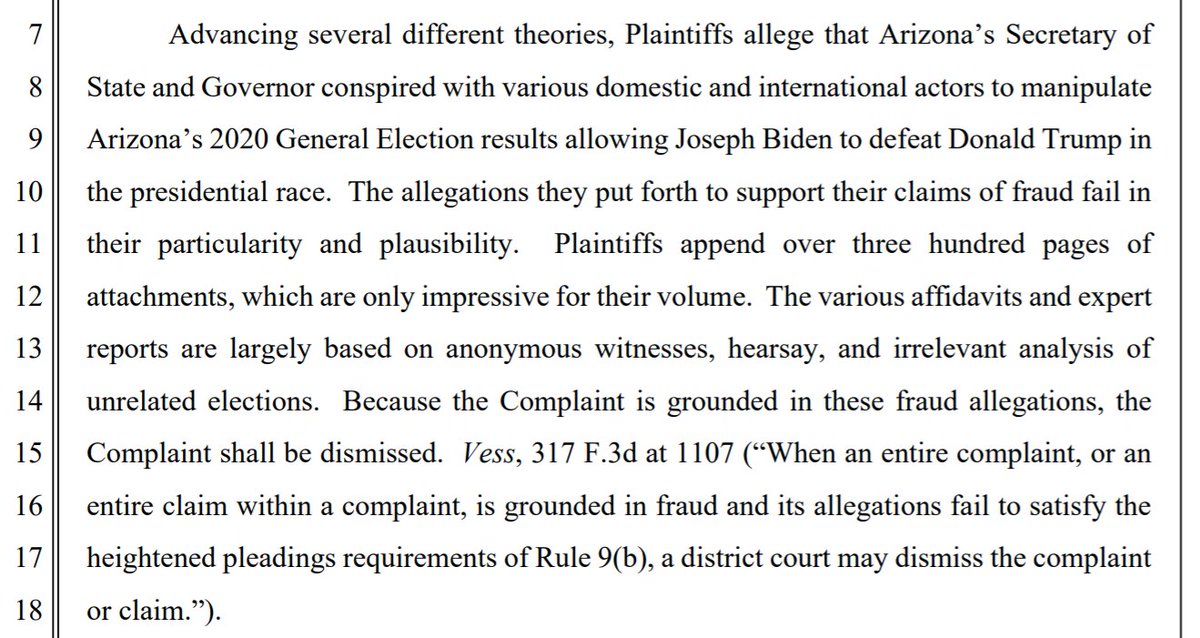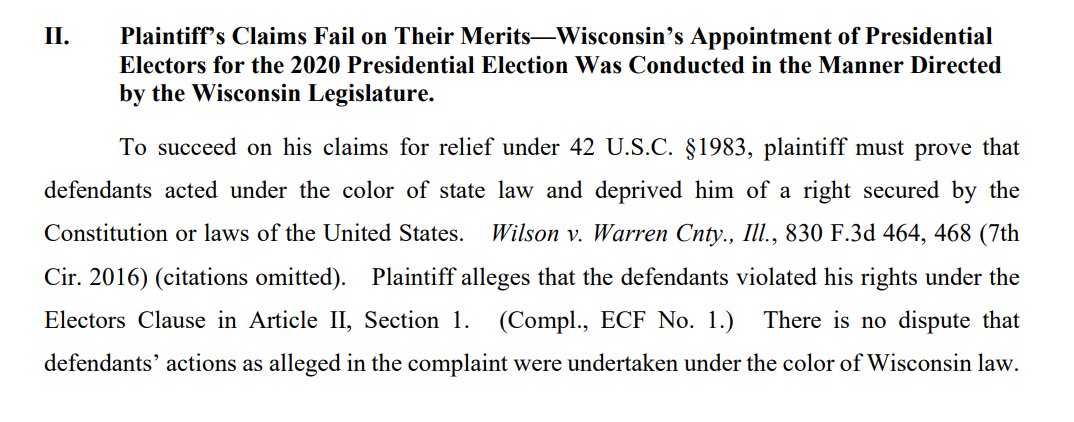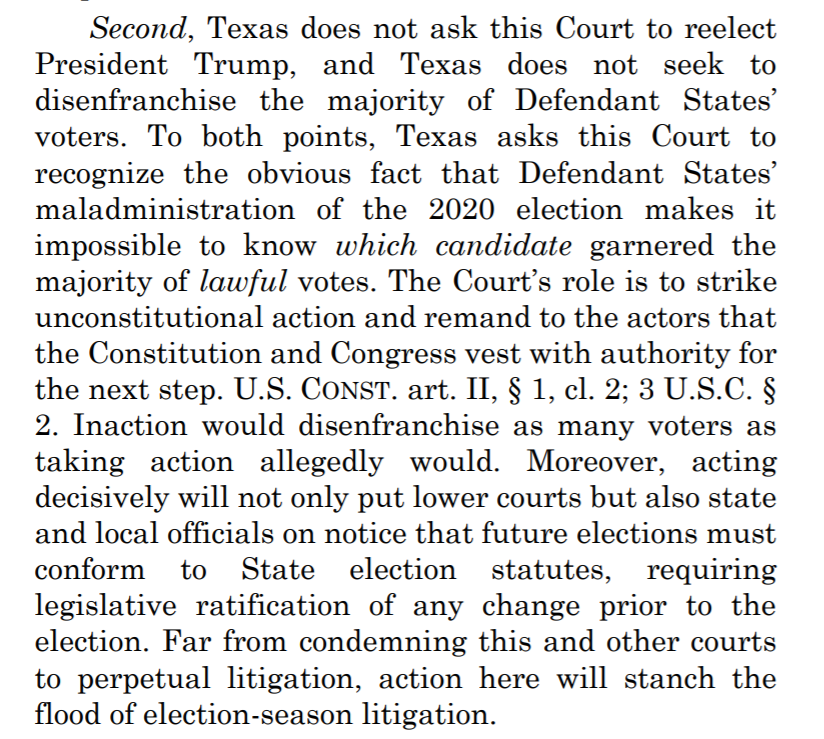
A judge tossed the Arizona "Kraken" suit.
"Allegations that find favor in the public sphere of gossip and innuendo cannot be a substitute for earnest pleadings and procedure in federal court. They most certainly cannot be the basis for upending Arizona’s 2020 General Election."
"Allegations that find favor in the public sphere of gossip and innuendo cannot be a substitute for earnest pleadings and procedure in federal court. They most certainly cannot be the basis for upending Arizona’s 2020 General Election."

Judge Humetewa says the lawsuit seeking to overturn Arizona's presidential election result is "sorely wanting of relevant or reliable evidence." 

In other equally surprising news, they sky is up.
The ruling is a lot like the others dismissing Sidney Powell's lawsuits alleging a vast election-fraud conspiracy. It's brutal and categorical.
First, the plaintiffs don't have standing.
First, the plaintiffs don't have standing.

The judge says courts can't remedy a claim that people's votes were diluted by destroying the votes of 3.4 million others. 

Even if the plaintiffs had standing, which they don't, they still couldn't bring this noise to federal court because of abstention. "The Court cannot think of a more troubling affront to federal-state relations than this." 

Even if the plaintiffs had standing, which they don't, and the suit wasn't barred by abstention, which it is, the state still has 11th Amendment immunity from prospective injunctive relief. 

The Kraken plaintiffs also lose on laches; "Plaintiffs offer no reasonable explanation why their claims were brought in federal court at this late date." And mootness. And they fail to state a legally cognizable claim.
This is an impressive number of reasons to lose a lawsuit, even compared to other election-fraud conspiracy lawsuits.
courtlistener.com/recap/gov.usco…
courtlistener.com/recap/gov.usco…
Judge Humetewa went through Powell's entire mountain of election-fraud evidence. "Plaintiffs append over three hundred pages of attachments, which are only impressive for their volume."
They're "hearsay" and "irrelevant analysis of unrelated elections." Some are anonymous.
They're "hearsay" and "irrelevant analysis of unrelated elections." Some are anonymous.

This would be an embarrassing way to lose a lawsuit for people capable of shame.
• • •
Missing some Tweet in this thread? You can try to
force a refresh












